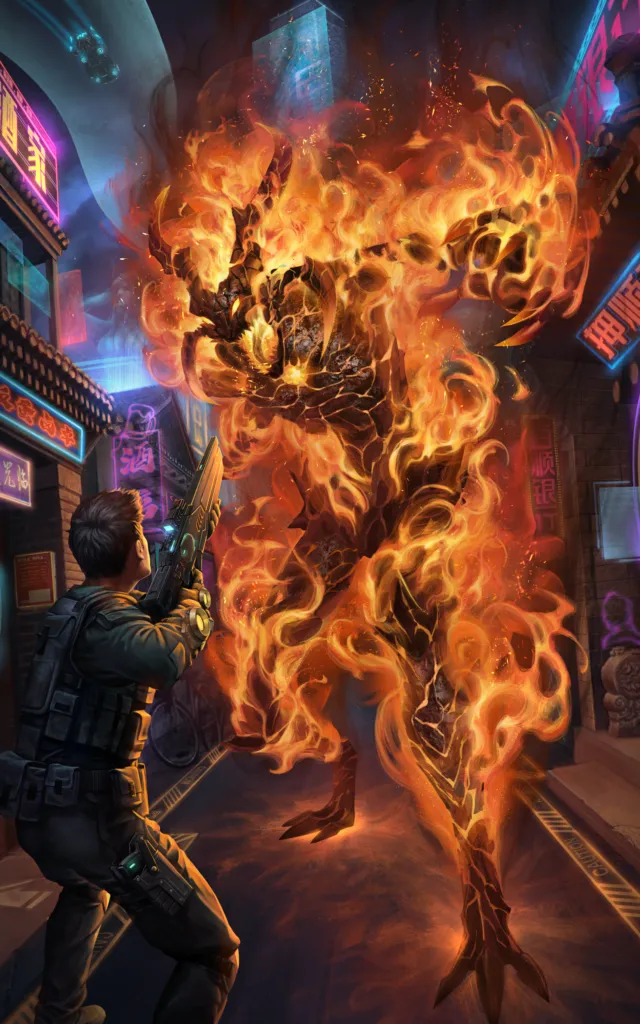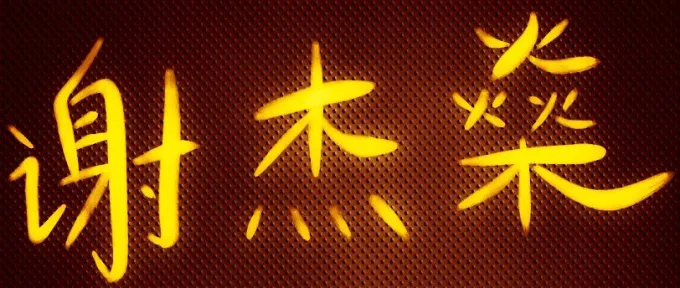
Cultivation fiction is hugely popular. And why not? The protagonist beats down everyone in his path, inevitably becoming the most powerful being in the story universe. He amasses wealth, fame and fortune without breaking a sweat. All the men want to be him—those who don’t are ankle-biters who can be dispatched as easily as turning a palm. All the women want to be with him—those who don’t are either already taken or are villainesses.
Cultivation fiction today means power fantasy with Eastern aesthetics. It speaks to the desires of every red-blooded Western man, dressed up in an exotic setting. It is post-modern pulp for a post-modern age.
My next series, Saga of the Swordbreaker, is also a cultivation story, with a major twist.
It is not a power fantasy.
It is not a harem story.
It is not about fulfilling worldly desires.
It is not subversion. It is superversion.
Cultivation as Heresy
The first mistake cultivation writers make is this: they treat cultivation as a means to power.
Characters drink potions and swallow pills to become more powerful. Characters grind monsters and bosses to gain XP and become more powerful. Characters seek out new gear to become more powerful. Characters practice martial arts to become more powerful. Characters meditate in special ways to become more powerful.
Power. Always power, and nothing but the pursuit of power.
The second mistake is this: they treat cultivation as an easy and isolated exercise.
Characters rapidly become more powerful. Over the course of a few in-story days or months—or even hours—they jump from human to superhuman to deity. This is the most visible, and the only, impact cultivation has on their lives. Outside the narrow quest for more power, cultivation does not affect them.
Some stories try to justify this through various ways. Eating special pills that boost your ‘cultivation’. Receiving one-on-one tuition from a grandmaster of ‘cultivation’. Having a special physiology well-suited for ‘cultivation’. Using technology to vastly accelerate your ‘cultivation’. It keeps ‘cultivation’ quick and effortless, keeping the plot humming along.
The third and gravest mistake is this: characters chase power to indulge in base desires.
The thrill of conquest. The tension of the hunt. The satisfaction of owning vast amounts of treasure. The wonder of exploring exotic lands. The pleasure of sexual exploits. The sheer, unadulterated, pleasure of gaining and exercising power over all around him.
These mistakes stem from the psychology of the modern fiction market. People read fiction to live vicariously through the lives of the characters. They experience the thrills and triumphs at second-hand, and none of the risks and dangers.
A modern audience has been conditioned to exalt hedonism and flee from unpleasantness. They want power over others, but none of the hard work needed to attain it. They want the thrills, but none of the consequences. They want a steady stream of dopamine, and they don’t want it to end.
Modern cultivation fiction reflects the psychology of the customer, which in turn reflects the spirit of the modern age.
It is a spirit of heresy.
‘Cultivation’ comes from the word 修. 修 is built on two radicals: 攸 and 彡. 攸 is itself a compound character that can be further divided into two more radicals: 人 and 攵. 攵itself is the original character of 滌.
A Chinese character carries within its radicals the meaning of the word. By writing the word you aren’t referring to a higher-order concept like you do in English or German; you are spelling out the idea that the word communicates. What do the radicals in ‘修’ mean?
彡 shows three tufts of hair, symbolizing a long beard, which in Chinese culture represents longevity and wisdom.
人 is the word for ‘human’.
滌 is to wash, sweep, cleanse, purify.
Put them all together and you see the meaning of 修: an old man who has cleansed himself and attained longevity and wisdom.
Cultivation is not about growing power. It is about purifying body, mind and spirit.
Cultivation is intrinsically tied to Daoist and Buddhist practice. Not dogma, practice. It is a continuous, never-ending process, a series of exercises to be performed so often and so deeply it becomes part of your very existence.
In Daoist and Buddhist thought, a person is originally connected to the source of deep wisdom and truth. However, stress, worldly concerns, delusions and base desires cut off a person from that source. To regain the state of original innocence, of original wisdom, the practitioner purifies himself through cultivation.
A related term is 养, the simplified version of 養. In English, it is usually rendered as ‘nurture’ and ‘nourish’. 養 is derived from two characters: 羊, or goat, and 食, which in this context means ‘to eat’.
養 shows feeding a goat. Why would you feed a goat? So that it becomes strong and healthy and can work as a beast of burden, or so you can harvest its meat, milk, hair and hide. This is not an overnight process. A goat requires a long period of attention before it becomes valuable to you. You can’t just feed it random stuff either. You need to feed it the right foods, look after it when it is sick, and ensure all it needs are met. Otherwise, it will not serve you when the time comes.
Likewise, when you nourish your qi, you want to become strong and healthy. This is not an overnight process, nor is it an easy process. It demands strict discipline, commitment and dedication. Unlike a diet or a workout regimen that lasts for weeks or months, this is a lifelong process. But if you do it right, you will reap the rewards.
In the Buddhist and Daoist traditions, spiritual power does not come from cultivation exercises. Simply performing those exercises mindlessly does not automatically bestow spiritual power. Such power comes from wisdom. It comes from a clear heart, a focused intent, and a pure spirit. By achieving and maintaining such an elevated state, you connect yourself with the wider cosmos, allowing you to access and leverage the deep and subtle laws that govern the universe.
Power is a byproduct of wisdom. It is not the purpose of cultivation. Cultivation seeks to cultivate wisdom, and then power—however it may manifest to the individual—will follow as a natural consequence. A higher being may bestow supernatural gifts on you, but he will only do so if he is confident that you will use them in wisdom. They will be withdrawn should you fall from grace. Should you deviate from the Way and allow your Original Mind to become obscured, you will lose your connection with the universe, and with it, any powers you may have accessed.
The Dao is self-correcting. He who deviates from the Way will experience ever-greater obstacles, hinderances and punishments, until at last he returns to the Way—or is crushed. Buddhism, too, is self-correcting. The doctrine of karma holds that everything you do will return to you. Do evil, and evil will be returned to you. Continue to do evil, and you create the causes and conditions of even greater evils to arise in your life, until you lose the capacity to do evil—be it by turning over a new leaf and repenting from your sins, or by being destroyed by the weight of your crimes.
In Buddhism and Daoism, the evil you have committed in one lifetime follows you into future lifetimes, until you exhaust the karmic fruit or purify your own karma. Your accumulated negative karma, above and beyond causing you suffering, also obscures your mind, preventing you from seeing the universe as it is, and blocks you from accessing deeper power.
To cultivate is to clear away delusions, purify your being, gain insight and wisdom, become aware of the patterns of negative thoughts and behaviours, and bring yourself in harmony with universal law. Modern cultivation fiction is the exact opposite of this.
Cultivation fiction draws its imagery, tropes, techniques and terminology from Buddhist and Daoist thought. Yet instead of leading readers to longevity and wisdom, it drowns them in base desires. Instead of nourishing and purifying the spirit, it blackens and scatters it, preventing the reader from achieving his full potential.
Cultivation fiction is heresy.
To Nirvana or Yinzhou
The goal of Buddhism is Nirvana: obtaining enlightenment and liberation from suffering. Central to this quest is transforming spiritual poisons into medicine, by overcoming desires and instilling virtues.
The goal of Daoism is Yinzhou: the Victorious Realm, an end to the cycle of death and rebirth, where the consciousness becomes eternal. To become an immortal, the Daoist must sweep his heart clean of delusions and desires, and become one with the Way.
With so many significant similarities, it is small wonder that Buddhist and Daoist cultivation methodologies agree with and supplement each other in many respects.
Saga of the Swordbreaker is based on the wisdom traditions of Buddhism and Daoism. It draws on the classics handed down over thousands of years. The cultivation system in the series is grounded in the practices of the saints and sages of ancient times.
Cultivation is not the search for power. It is a holistic approach to embodied spirituality: spirituality as experienced through deep internal awareness, focused meditation, and a combination of breathwork and bodywork. Through diligent practice, the martial cultivator attains good health, longevity, wisdom, virtue—and, yes, martial and spiritual power.
Instead of losing himself in base desires, the true cultivator leaves them behind. He recognizes them when they arise, but instead of indulging himself, he releases them so they cannot affect him. Instead of blindly pursuing power and profits, he is not attached to them. They are useful, to be sure, but they are not the be-all and end-all of existence. Instead of mindlessly chasing sexual pleasure, he chooses his spouse with great care, with an eye on the long term. Instead of seeking to dominate the world, he chooses to protect it.
This is the signature of my cultivation stories. Reject modernity, return to tradition. Abandon vice, embrace virtue. Become healthy, become wise, become the best you can be.
If this sounds like the kind of story you’d like to read, the kind of person you aspire to be, check out the IndieGoGo of Saga of the Swordbreaker here!

Want an idea of what the concept looks like? Sign up for my newsletter here to receive a free story set in the story universe!